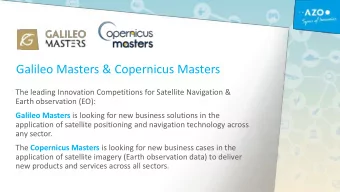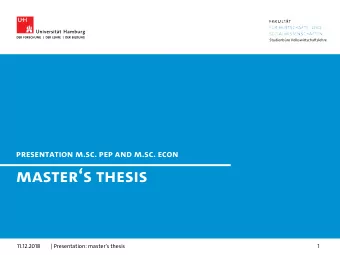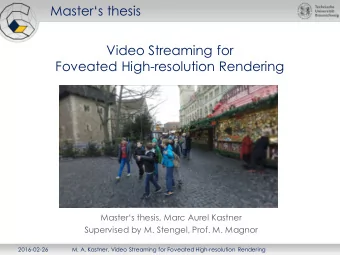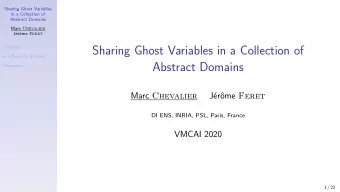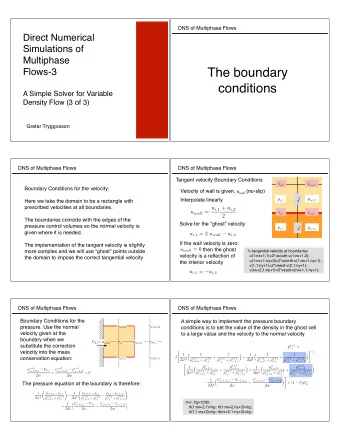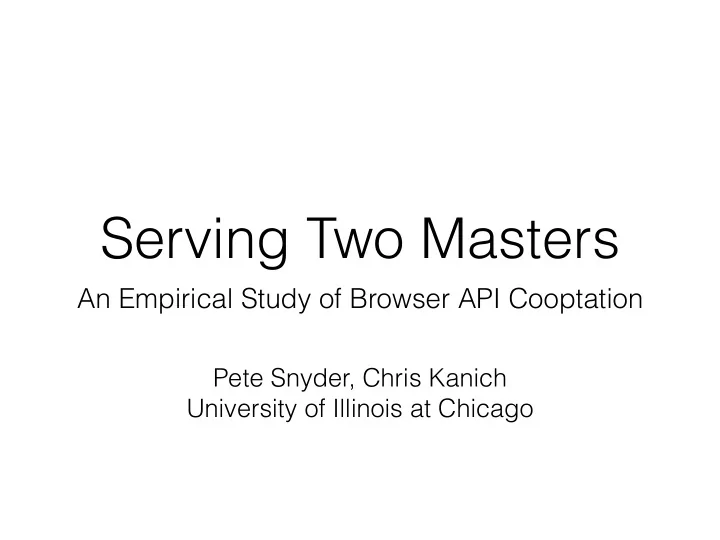
Serving Two Masters An Empirical Study of Browser API Cooptation - PowerPoint PPT Presentation
Serving Two Masters An Empirical Study of Browser API Cooptation Pete Snyder, Chris Kanich University of Illinois at Chicago Less More Features Features Less More Features Features Managed Pointer Memory Arithmetic
Serving Two Masters An Empirical Study of Browser API Cooptation Pete Snyder, Chris Kanich University of Illinois at Chicago
Less More Features Features
Less More Features Features Managed Pointer Memory Arithmetic
Outline • Browser Complexity is Increasing • Complexity is Often Not Useful • Complexity is Harmful to Privacy • Is Complexity is Harmful to Security?
1. Browser Complexity is Growing
1993: Mosaic
1995: Netscape 2.0
1996: CSS
1998: DOM1
1999: AJAX / XMLHttpRequest
Observations • API growth started off very slow • API growth was “document” centric • “Broad” APIs
API Growth
2013 2014 2015 • CSSOM View Module • Calendar API • Encrypted Media Extensions • Web Audio API • Messaging API • Web MIDI • Proximity Events • RDF Extensions • Service Workers • Crypto Extensions • Progress events • Performance API • Touch Events • Network Info API • Raw Socket API • GeoLocation API • Ambient Light API • WebDriver API • Pointer API • HTML 5 • SVG 2 API • WebRTC • CSS Animations • WebCrypto API
2. Is This Complexity Useful?
Determining API “Usefulness” • Measure how often APIs are called • Decide whether those calls are “useful" • Simulate real world web browsing
Measuring API Calls • Selected 45 APIs and features • Instrumented PhantomJS / WebKit • Implemented missing APIs
“Usefulness” Oracle • Subjective measure • Ghostery and AdBlock+ filter rules • Measure API usage pre-and-post filters
Simulated Browsing • Alexa 10,000 • 10,000 random URLs • 10,000 random Hosts • “Random” sites taken from searching UNIX dictionary tri-grams on DDG
AJAX
DOM 1 + 2 APIs
Rare APIs API Name URLs Battery API 21 Page Transition API 9 GeoLocation API 55 Shadow DOM 5
Non-used APIs • IndexDB • SVG API • WebGL • Vibration API • WebRTC • WebAudio API • Browser Name API • WebWorker API • Gamepad API
GeoLocation API
Touch Events API
3. Browser Complexity is Harmful to Privacy
Example: WebRTC • Intent: Allow peer-to-peer Browser Version Since applications • Attack: Leaks local IP Firefox 22 address Chrome 23 • Widely available (56.22%) Android Browser 40 • Rarely used for intended purpose Opera 30
Example: Crypto • Intent: Allow applications Browser Version Since to perform crypto operations Firefox 38 • Use: Generates persistant Chrome 31 random identifiers Android Browser 4.4 • Widely available (70.24%) Opera 30 • Rarely used for intended IE 11 purpose iOS 7.1
Methodology • Load and measure each URL • Reload and remeasure with Ghostery • Big differences in API usage -> privacy-harmful APIs
CSSOM API (Document)
Crypto API
Storage API
“Non-User Serving” APIs API Pages # Ghost # Ghost % ABP # ABP % Both # Both % CSSOM 249 18 92.8 34 86.3 1 99.6 (Doc) Crypto 7,713 1,123 85.4 38 99.5 27 99.6 Language 16,909 2,242 86.7 2,072 87.7 1,131 93.3 <iframe> 12,110 3,202 73.6 4,464 63.1 1,351 88.8 Injection Page 729 228 68.7 81 88.9 86 88.2 Visibility Websocket 225 99 56.0 58 74.2 43 80.9 Plugin 18,116 5,870 67.6 4,133 77.2 3,512 80.6 Detection Battery 21 17 19.0 4 81.0 6 71.4 API Storage 12,357 5,499 55.5 5,496 55.5 3,817 69.1
“User Serving” APIs API Pages # Ghost # Ghost % ABP # ABP % Both # Both % DOM 1 23,304 22,651 2.8 21,409 8.1 21,266 8.7 (creating) DOM 1 23,659 22,965 2.9 21,705 8.3 21,580 8.8 (querying) AJAX 20,016 19,027 4.9 16,153 19.3 16,303 18.6 Canvas 2,095 1,949 7.0 1,676 20.0 1,694 19.1 API User 23,439 21,195 9.6 19,602 16.4 18,870 19.5 Agent <audio> 307 292 4.9 247 19.5 242 21.2 Blob API 308 287 6.8 233 24.4 238 22.7 <svg> 860 798 7.2 520 39.5 527 38.7 History 576 490 14.9 374 35.1 349 39.4 API
4. Is Complexity is Harmful to Security?
@todo • Status quo violates “principle of least privilege” • Gathering data from open bug databases • Lots of hand labeling involved… • On going…
5. Conclusions
Conclusions • Browsers are growing in complexity quickly • Mismatch between user intent and web author intent • Mismatch between need and capability • Harms privacy, might harm security
Thanks!
Recommend
More recommend
Explore More Topics
Stay informed with curated content and fresh updates.



